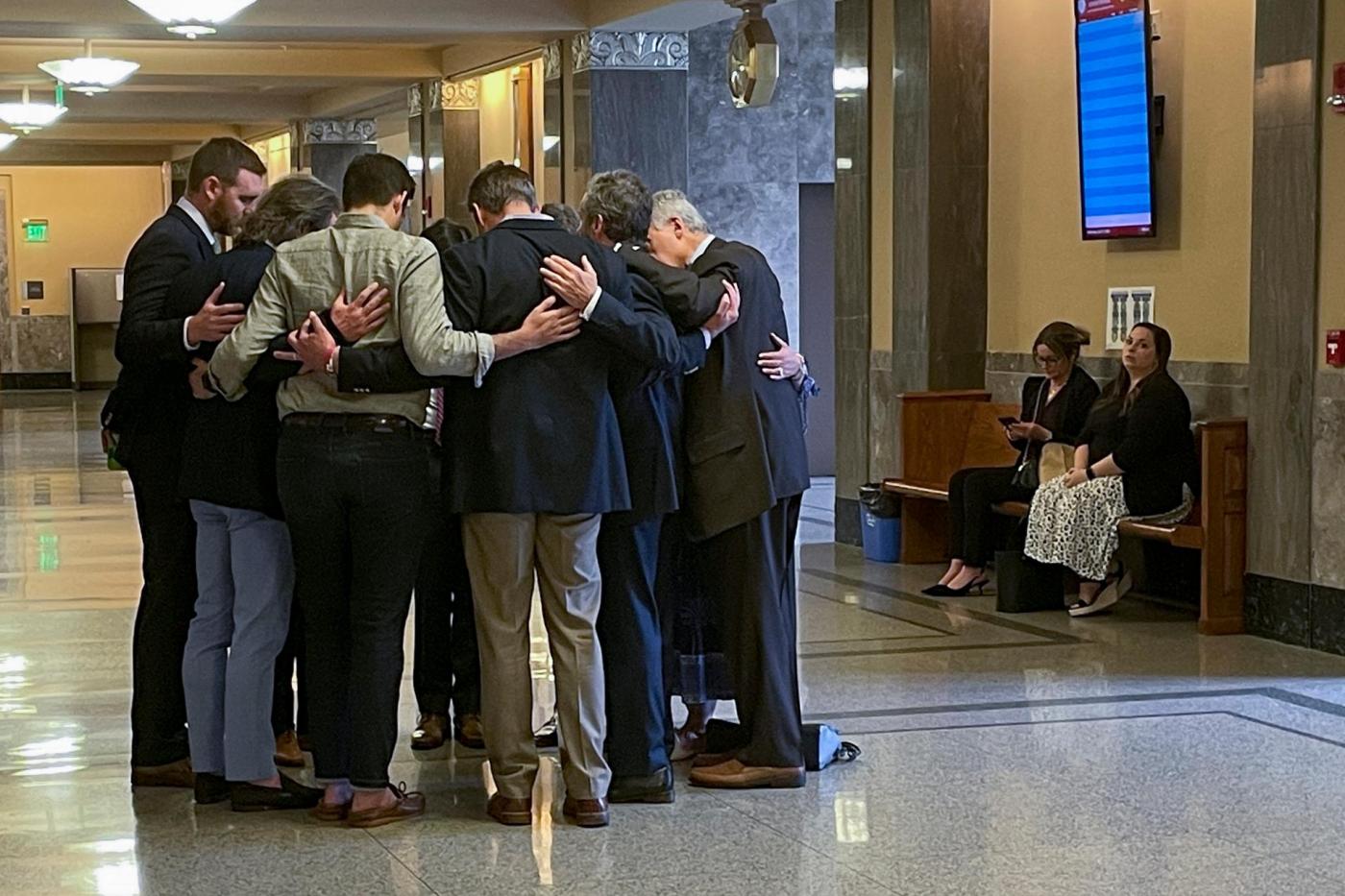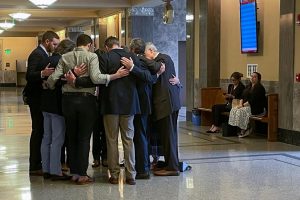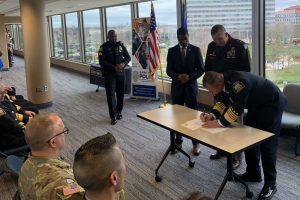
Tennessee judge wants more information on copyright before ruling on school shooter’s writings
By TRAVIS LOLLER (Associated Press)
NASHVILLE, Tenn. (AP) — A Tennessee judge on Wednesday seemed ready to agree with an attorney for Nashville police that the writings of a school shooter could be released as public record once the investigation is officially closed.
But the parents of children at the Covenant School added an extra twist to an already complicated case by asserting that they have gained legal ownership of the writings from the shooter’s parents and now hold the copyright.
None of the eight attorneys arguing before Davidson County Chancery Court Judge I’Ashea Myles during a two-day hearing claimed to be a copyright expert. Their answers to Myles’ pointed questions about the interplay of federal copyright protections and the Tennessee Public Records Act seemed at times only to muddy the waters further.
In the end, Myles said she will write an order outlining specific questions she wants them to address. Only after that will she rule on when, if ever, the writings can be released to the public.
Police have said the writings that they collected as part of their investigation into the March 27, 2023, shooting at the Covenant School that killed three 9-year-old children and three adult staff members are public records. However, they have said they cannot be released until their investigation is concluded.
Those asking that the writings be released immediately include news outlets, a Tennessee state senator, a gun-rights group and a law enforcement nonprofit. They argue that the open investigation is a formality at this point. The shooter was killed by police at the scene, and no other suspects have been identified.
Meanwhile, three other groups that have been allowed to intervene in the case argued that none of the writings should ever be released.
In addition to the copyright issues, attorneys representing the Covenant parents, the Covenant School and the Covenant Presbyterian Church presented a united front in arguing that the writings fall under a Tennessee law that protects the privacy of information, records and plans related to school security. Giving the law the broadest possible reading, the writings could inspire copycats and therefore threaten Covenant’s security, they argued.
Myles seemed to take exception to that interpretation.
“Right now, you’re asking me to adopt an interpretation of this statute that information written in a journal should be construed as a plan related to school security,” she said. She noted that any decision she makes is sure to be appealed and will have to survive the scrutiny of a higher court.
Eric Osborne, the parents’ attorney, had yet another reason to keep the writings secret. All of the children of Covenant School are victims under the Tennessee Constitution and have a right to be free from abuse, harassment and intimidation. Releasing the writings publicly could harm the children and would violate the law, he argued.
Myles again pushed back on such a broad approach.
“Is ‘harm’ synonymous with harassment, intimidation and abuse?” she asked. “You’re asking this court to perhaps create new law.”
Myles offered the example of a victim undergoing cross-examination in a criminal trial. It might be upsetting, but it is not a violation of their constitutional rights, she said.
Myles added that she reads the law to protect victims during the pendency of criminal justice proceedings. “To say it is in perpetuity, after the investigation is closed — I don’t see it,” she told Osborne.
He replied that there is no expiration. “Once you are involved in the criminal justice system, you have the constitutional rights that Tennesseans have given to all victims,” Osborne said.
Myles then asked whether there might be some parents at the school who want the writings released. “You represent your clients’ interests. What you are asking the court to do puts a bar on what they want. Are you elevating one group of parents over another?” she said.
Osborne said that 103 of the 112 families with children at the school at the time of the March 27, 2023, attack have signed on to their position that the writings should be suppressed.
At the end of the hearing, Myles made clear that the decision was a difficult one.
“Before I’m a chancellor, I’m a human,” she said. “I’m also a mom.”
Although her “heart grieves” for the children, Myles said she has to put emotion aside. “I have to take how I feel out of it. I have to interpret the law as written by the legislature,” she said.


